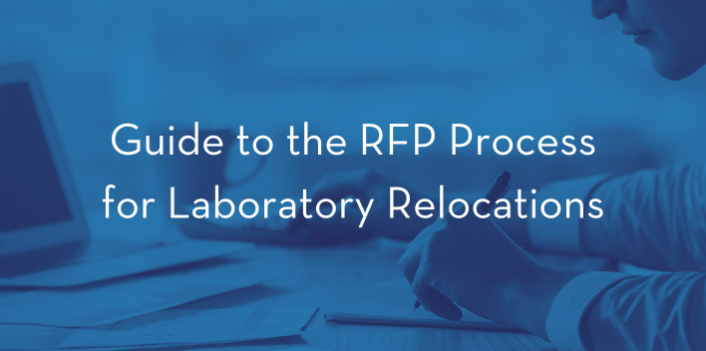Guide to the RFP Process for Laboratory Relocations

Laboratory relocations require meticulous planning, precise execution, and strict adherence to regulatory standards. This makes the Request for Proposal (RFP) process a cornerstone for ensuring that such sensitive moves are handled professionally. This guide will walk you through creating, distributing, and evaluating an RFP for laboratory relocation services, ensuring you select the right partner for your needs.
Understanding the RFP
What is an RFP?
An RFP is a formal document that an organization issues to procure services or goods from external suppliers. By outlining exact requirements and specifications, it allows the requester to assess various offerings on a fair and equal basis, ensuring the best fit for specific needs.
Why Use an RFP for Laboratory Relocations?
A lab relocation RFP serves to clarify project requirements, set expectations, and solicit bids that meet very specific criteria, such as technical expertise, safety standards, and logistical capabilities. This is crucial for minimizing downtime and handling delicate equipment or hazardous materials safely.
Crafting an Effective RFP
Key Elements of a Lab Relocation RFP
An effective RFP for this type of service should include:
- Project Overview and Background: Describe your facility, the scope of operations, and the need for relocation.
- Detailed Scope of Work: Clearly define what the relocation will entail, including inventory lists, special handling requirements, and any decommissioning or reinstallation of equipment.
- Project Goals and Objectives: Specify your main objectives, such as timelines, budget constraints, and minimal operational disruption.
- Vendor Qualifications: Outline necessary qualifications, including industry certifications, experience with similar projects, and any specific technical abilities.
Writing the RFP Document
To ensure clarity and receive useful proposals, consider the following tips:
- Be Specific and Detailed: The more detailed your specifications, the more accurate the proposals will be.
- Encourage Clarity: Allow for a question-and-answer period where potential vendors can seek clarifications on the RFP.
- Invite Innovation: Encourage vendors to propose creative solutions that might enhance efficiency or reduce costs.
Distributing the RFP
Selecting Potential Vendors
Identify and select potential vendors based on:
- Proven Experience: Look for vendors with a strong track record in similar projects.
- Technical Capability: Ensure they have the necessary resources to manage the complexity of a lab move.
- Compliance and Safety: Vendors must adhere to all relevant regulations and safety standards.
The Distribution Process
Distribute the RFP to a carefully curated list of potential vendors. Set clear deadlines for submission and provide detailed instructions for responding.
Evaluating Proposals
Setting Evaluation Criteria
Develop criteria based on:
- Cost and Value: Evaluate not just the price but the overall value each vendor brings.
- Experience and Reliability: Assess their past performance and reliability.
- Methodological Approach: Review their proposed methods for ensuring a safe and efficient relocation.
The Selection Process
Review proposals with a panel of experts from relevant fields, such as logistics, lab management, and compliance. Shortlist candidates for interviews or presentations for more detailed evaluation.
Finalizing the Vendor Selection
Negotiation and Contract
Negotiate terms that meet both parties' needs and finalize details in a contract that outlines every aspect of the service delivery.
Kickoff and Implementation
Once a vendor is selected, initiate a kickoff meeting to start the relocation process. Regular updates and clear communication channels are essential for a successful relocation.
FAQs
How long does the RFP process typically take from start to finish? It can take anywhere from a few weeks to several months, depending on the complexity of the relocation and the thoroughness of the evaluation process.
Should we ask for references or proof of past projects in the RFP? Yes, asking for references or case studies is essential to verify the vendor's experience and capability in handling similar projects.
What is the most important factor to consider when evaluating proposals? While all criteria are important, the vendor’s experience and their approach to ensuring safety and compliance with industry standards are often paramount.
Can we update the RFP based on feedback from potential vendors? Yes, if significant clarifications or adjustments are needed, it can be beneficial to update the RFP to ensure you receive the most accurate and competitive bids.
How do we handle highly technical requirements in the RFP? It is advisable to involve technical experts in drafting the RFP to ensure all technical specifications are accurately described and understood.
